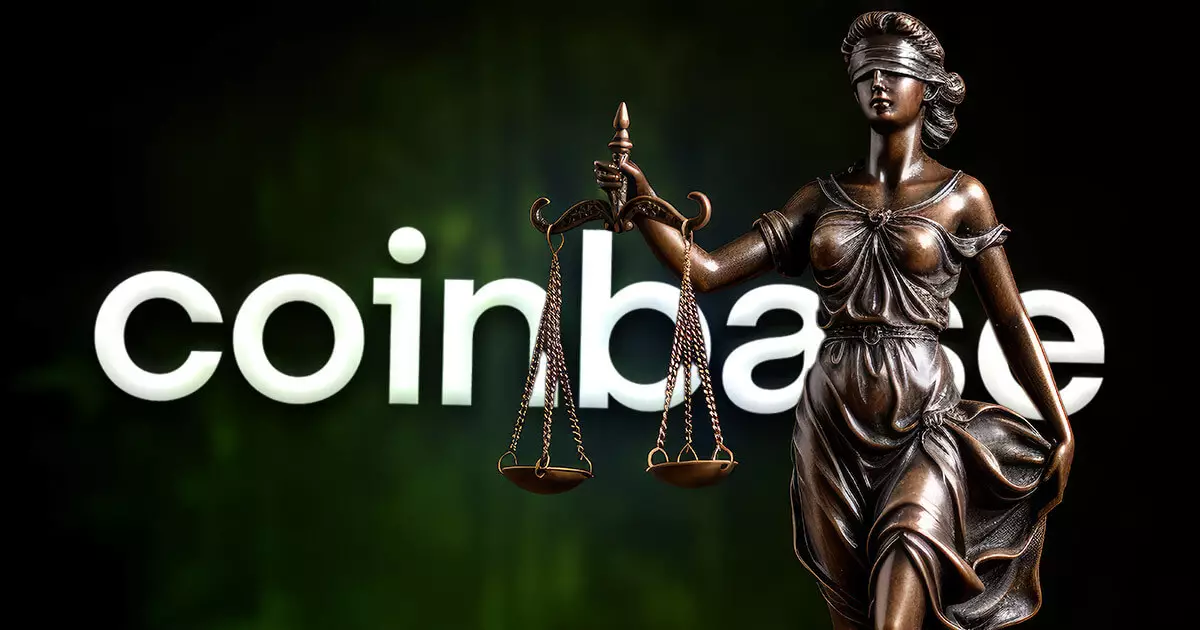In a significant development within the cryptocurrency realm, BiT Global has initiated legal proceedings against Coinbase, one of the leading trading platforms in the United States. This lawsuit, filed on December 13, raises alarms about potential antitrust violations and manipulation of the market. Central to the dispute is the controversial removal of wrapped Bitcoin (WBTC) from Coinbase’s offerings, a decision that BiT Global contends is an orchestration to favor Coinbase’s own wrapped Bitcoin product, known as Coinbase Wrapped Bitcoin (cbBTC). The implications of this case extend far beyond the trading of a single cryptocurrency; they challenge the very foundations of competition and innovation within the digital asset ecosystem.
At the heart of BiT Global’s allegations is the claim that Coinbase is abusing its market dominance to stifle competition and establish a monopoly over the wrapped Bitcoin sector. The complaint asserts that the exchange’s removal of WBTC was not driven by legitimate concerns regarding listing standards, but rather a strategic maneuver to consolidate its market share. By prioritizing cbBTC, Coinbase not only stands to augment its revenue through increased transaction fees but also potentially restricts consumer access to alternatives. BiT Global insists that this deliberate positioning for competitive advantage violates antitrust laws designed to maintain a fair playing field in commerce.
Coinbase defended its actions by citing purported listing standards as a rationale for delisting WBTC. However, BiT Global effectively counters this argument by highlighting the exchange’s recent decisions to include various meme coins, which raises questions about its adherence to consistent evaluative criteria. The inclusion of such tokens suggests that Coinbase’s rationale for removing WBTC is, at best, inconsistent and appears to serve its self-interests rather than any objective market standards. This discrepancy reinforces BiT Global’s claim that the removal of WBTC seems motivated by a desire to erode competition and secure a dominant position for cbBTC.
The implications of this lawsuit are far-reaching, especially when viewed through the prism of a rapidly evolving cryptocurrency landscape. As cryptocurrency continues to gain traction in mainstream finance, the need for equitable competition has never been more crucial. BiT Global is not only fighting to restore WBTC to the Coinbase platform but is also advocating for the essential principles of decentralization and innovation that underpin the ethos of cryptocurrency. If successful, this lawsuit could serve as a watershed moment, reinforcing the idea that large exchanges must operate within competitive frameworks that do not compromise the integrity of the market.
Understanding the broader context of this legal skirmish involves delving into the history of wrapped Bitcoin itself. Wrapped Bitcoin (WBTC) emerged as a crucial tool for integrating Bitcoin with the Ethereum blockchain, allowing for greater liquidity and broader use within decentralized finance (DeFi) protocols. However, recent changes in custody arrangements and the emergence of Justin Sun-linked BiT Global as a key custodian have stirred controversy. With changes in custody, concerns have been raised about the asset’s stability, prompting significant players in DeFi, such as MakerDAO and Aave, to reevaluate their stance on WBTC as a collateral asset.
Coinbase’s launch of its own cbBTC product amid these developments suggests a shift in the competitive landscape, where established firms are responding to evolving circumstances with their tailored offerings. Although cbBTC has made strides, comprising the second-largest wrapped Bitcoin product with a market cap nearing $2 billion, the repercussions of BiT Global’s lawsuit could redefine the hierarchy among these assets.
As the lawsuit unfolds, the cryptocurrency community watches with bated breath. The outcome could have profound effects on market practices, consumer choice, and the future of decentralized finance. This case encapsulates a crucial narrative in cryptocurrency: the balance between innovation and fair competition. Whether BiT Global can prove its claims and compel Coinbase to restore WBTC remains to be seen, but this legal battle serves as a crucial juncture in the ongoing dialogue around regulation, competition, and the integrity of the burgeoning crypto market.

